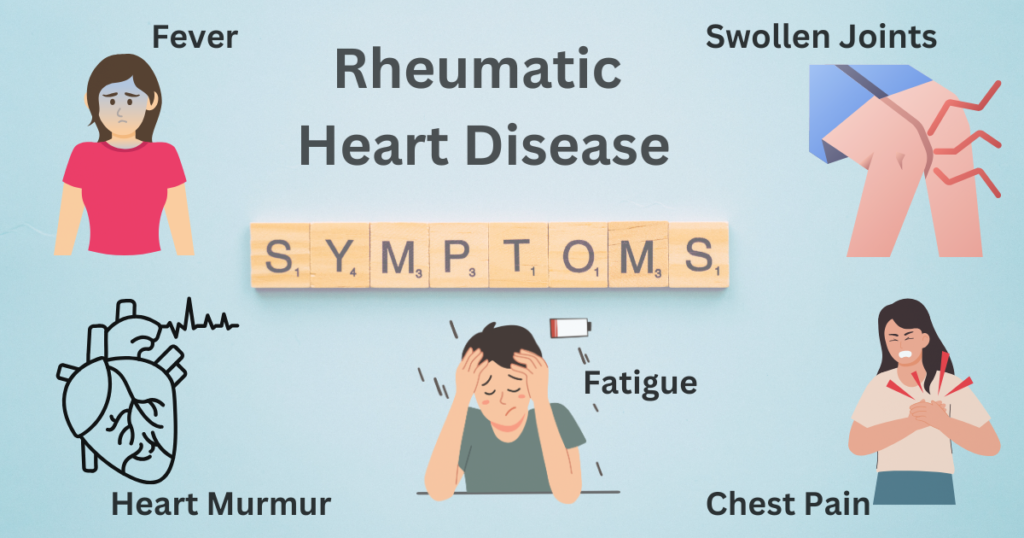Rheumatic Heart Disease (RHD) is a serious condition that affects the heart, often causing damage to the heart valves. It is primarily caused by an untreated infection of Group A Streptococcus bacteria, the same bacteria responsible for illnesses like strep throat and scarlet fever. When left untreated, these infections can lead to rheumatic fever, which, in turn, may cause long-term damage to the heart, resulting in Rheumatic Heart Disease.
In this blog, we will explore what Rheumatic Heart Disease is, its causes, symptoms, and effective management strategies to help individuals live healthier lives.
What is Rheumatic Heart Disease?
Rheumatic Heart Disease is the long-term consequence of rheumatic fever, which is a complication of untreated or inadequately treated strep throat or scarlet fever. Rheumatic fever can occur after a strep infection, especially when it is not treated with antibiotics. This condition causes inflammation in various parts of the body, including the heart. When the heart valves become inflamed, they can become permanently damaged, leading to RHD.
While RHD is rare in developed countries due to the widespread use of antibiotics, it is still common in developing countries, where access to healthcare may be limited. The disease can be life-threatening if left untreated, but with timely treatment, many patients can lead normal lives.
Causes of Rheumatic Heart Disease
The root cause of Rheumatic Heart Disease is Group A Streptococcus infections, such as strep throat and scarlet fever. When these infections are not treated with the proper antibiotics, they can progress to rheumatic fever. Rheumatic fever is an inflammatory disease that can affect various parts of the body, including the heart, joints, skin, and brain.
The heart valves, in particular, are vulnerable to inflammation, which can lead to scarring, narrowing, or leakage of the valves. Over time, this damage can severely affect the heart’s ability to pump blood effectively, leading to complications like heart failure or stroke.
Symptoms of Rheumatic Heart Disease
Rheumatic Heart Disease often develops slowly, and symptoms may not appear until significant damage has been done to the heart valves. Common symptoms include:

- Chest Pain: As the heart valves become inflamed, individuals may experience chest pain or discomfort, which may worsen with physical activity.
- Shortness of Breath: Damage to the heart valves can affect the heart’s ability to pump blood, leading to fluid buildup in the lungs, which causes breathing difficulties.
- Fatigue and Weakness: As the heart struggles to pump blood efficiently, individuals may feel unusually tired or weak.
- Swelling in the Legs and Abdomen: Fluid retention can occur when the heart cannot effectively circulate blood, leading to swelling in the legs or abdomen.
- Heart Murmur: A heart murmur is an abnormal sound heard through a stethoscope and may indicate valve damage.
- Joint Pain: Rheumatic fever can cause inflammation in the joints, often leading to painful and swollen joints, especially in the knees and elbows.
How is Rheumatic Heart Disease Diagnosed?
Early diagnosis of Rheumatic Heart Disease is essential to prevent further complications and improve the chances of successful treatment. Medical professionals typically use a combination of tests to diagnose the condition:

- Physical Exam: A doctor will listen for heart murmurs and check for signs of inflammation in the joints.
- Blood Tests: Blood tests can detect the presence of Group A Streptococcus bacteria and markers of inflammation in the body.
- Echocardiogram: This ultrasound test allows doctors to visualize the heart valves and assess any damage to them.
- Electrocardiogram (ECG): An ECG measures the electrical activity of the heart and can help identify irregular heart rhythms.
Management of Rheumatic Heart Disease: Treatment and Prevention
The management of Rheumatic Heart Disease involves a comprehensive approach to reduce symptoms, prevent further damage, and improve the overall quality of life. Here’s how it can be managed effectively:
1. Early Treatment of Strep Infections
The most important aspect of preventing Rheumatic Heart Disease is to promptly treat strep throat or scarlet fever with antibiotics. Proper antibiotic treatment prevents the progression to rheumatic fever and reduces the risk of developing RHD. If an individual has had rheumatic fever, long-term antibiotic therapy may be prescribed to prevent recurrent strep infections, which can cause additional damage to the heart.
2. Anti-Inflammatory Medications
Anti-inflammatory drugs, such as NSAIDs or corticosteroids, may be used to reduce inflammation caused by rheumatic fever. These medications help to alleviate symptoms like joint pain, swelling, and inflammation in the heart valves.
3. Medications to Manage Heart Function
If the heart valves have been damaged, medications to manage heart failure may be necessary. Diuretics, ACE inhibitors, and beta-blockers are commonly prescribed to manage fluid retention, reduce blood pressure, and control irregular heart rhythms.
4. Surgical Interventions
In more severe cases where the heart valves are severely damaged, surgery may be required. Surgical options include:
- Valve Repair: Surgeons may attempt to repair the damaged valve to restore normal blood flow.
- Valve Replacement: If the valve is too damaged to repair, it may be replaced with a prosthetic valve, either mechanical or biological, to restore heart function.
5. Lifestyle Modifications
Lifestyle changes play a crucial role in the management of Rheumatic Heart Disease. These changes can help to reduce the strain on the heart and improve overall heart health:
- Heart-Healthy Diet: A diet rich in fruits, vegetables, whole grains, and lean proteins can support heart health.
- Regular Exercise: Light to moderate physical activity, as recommended by a healthcare provider, can help improve cardiovascular fitness.
- Avoiding Smoking and Excessive Alcohol: Smoking and excessive alcohol can damage heart health and should be avoided.
6. Regular Monitoring
For individuals living with Rheumatic Heart Disease, regular check-ups with a healthcare provider are essential. These check-ups may include echocardiogram, ECGs, and blood tests to monitor the condition of the heart and assess any changes in heart function.
Can Rheumatic Heart Disease Be Prevented?
Rheumatic Heart Disease is largely preventable with early detection and treatment of strep throat and scarlet fever. Here are some preventive measures:
- Timely Antibiotic Treatment: Ensure that strep throat and scarlet fever are treated promptly with antibiotics to prevent complications.
- Regular Medical Check-ups: Regular visits to a healthcare provider can help identify any signs of RHD early, especially for children who are at higher risk.
- Good Hygiene Practices: Good hygiene, such as frequent handwashing and avoiding close contact with infected individuals, can reduce the spread of Group A Streptococcus bacteria.
FAQ :
- What is Rheumatic Heart Disease?
Rheumatic Heart Disease is a condition where heart valves are permanently damaged due to inflammation caused by untreated rheumatic fever, which stems from a Group A Streptococcus infection. - What is the management of Rheumatic Heart Disease?
Management includes antibiotics to prevent recurring infections, anti-inflammatory medications, heart failure management, and sometimes surgery to repair or replace damaged valves. - How long can you live with Rheumatic Heart Disease?
With proper treatment and regular medical care, individuals with Rheumatic Heart Disease can live for decades, though the prognosis depends on the severity of valve damage and adherence to management plans. - What causes Rheumatic Heart Disease?
Rheumatic Heart Disease is caused by untreated or inadequately treated Group A Streptococcus infections like strep throat or scarlet fever, which lead to rheumatic fever and subsequent heart valve damage. - Rheumatic Heart Disease is a complication of?
Rheumatic Heart Disease is a complication of rheumatic fever, an inflammatory condition that develops after untreated Group A Streptococcus infections. - is rheumatic fever and rheumatic heart disease same?
No, rheumatic fever is an inflammatory disease caused by untreated strep throat, while rheumatic heart disease is a long-term complication of rheumatic fever that affects the heart valves. - How is rheumatic heart disease diagnosed in Ahmedabad?
Diagnosis is based on medical history, physical examination, echocardiogram, electrocardiogram (ECG), and blood tests to detect inflammation.
Conclusion
Rheumatic Heart Disease is a preventable yet serious condition that can lead to severe heart complications if left untreated. The key to managing RHD is early detection and proper treatment. With timely intervention, the progression of the disease can be slowed, symptoms can be controlled, and individuals can lead a healthier, more active life.





